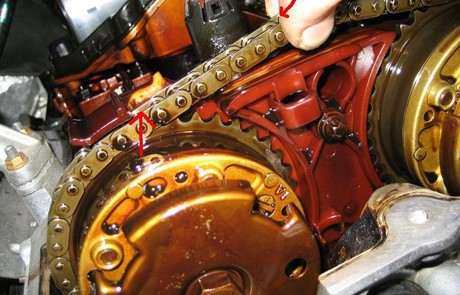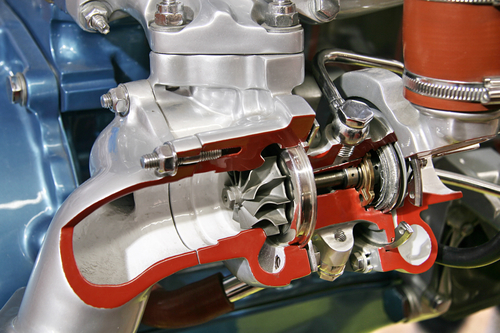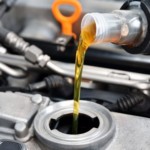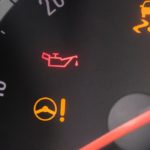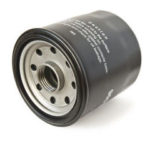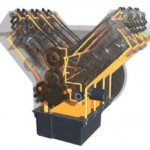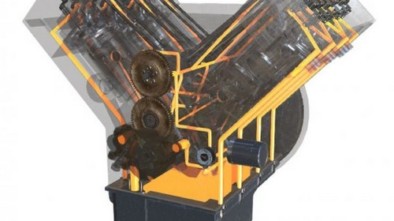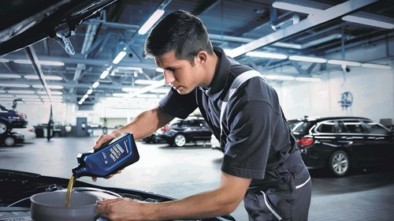Engine, Camshaft and Turbine Damage due to Engine Oil Savings!
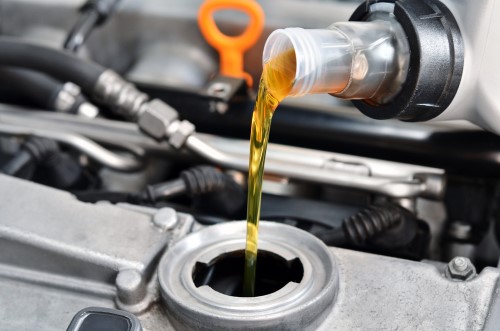
Topping up engine oil
By deteriorating the lubrication parameters, the upper parts of the engine are the first to hit, which, due to a lack of pressure, loss of engine oil viscosity, causes irreparable damage.
Lubrication is like engine blood flow, and yet many save on engine oil, exceed the replacement interval, do not control the level and do not top up as needed. It is harmful to use unsuitable (mineral or semi-synthetic instead of synthetic) or poor quality engine oil (second or third class often comes on our market), not to change the oil filter every time you change the engine oil or use a cheap replacement, which filters poorly, exceeding the engine replacement interval oil, even ‘squeezing’ the whole in the event of an excessive share of city driving. Driving with oil at a minimum is very, very harmful, with the explanation ‘I will replace it soon anyway’.
Deficiency, soiling and loss of viscosity accelerates wear on the chain and sprocket and damages and locks the valve phase variator mechanism
'Saving' on engine oil is especially harmful for the parts in the upper part of the engine, from which the oil, while switched off, is drained into the crankcase. And after starting the engine, it takes some time to establish the required oil pressure in all lubricating sliding contacts, especially in elevated assemblies. The problem increases wear and lack of oil. The most endangered are the timing chain and sprockets and the valve phase adjustment system, with swivel chamber and Teflon seals.
Chain and sprocket wear occur, and soiled oil creates a precipitate that impedes oil circulation and damages and blocks the valve mechanism of the valve phase variator. And replacing the chain, with sprockets, tensioner, and guides, is three times more expensive than replacing the 'timing belt' service set with the engine that has this option installed. The deterioration of the lubrication is detrimental to the camshafts and the contact sliding surfaces of the lifter, that is, the rocker and the rocker.
Pressure drop, aging and oil pollution, use of semi-synthetic, and especially mineral oil, instead of 100% synthetic, is death for the turbocharger.
'Saving' on engine oil (level drop, loss of viscosity, poor base, contamination…) is particularly detrimental to turbo engines, as the turbocharger is lubricated (shaft bearings) and cooled (prevents overheating) by engine oil. Peak temperatures on the turbine side of the turbocharger in turbodiesel engines reach 850⁰C, and in turbo gasoline 900⁰C. For tuned, at full load, 950⁰C, or even 1000⁰C.
Then it easily burns and cracks the oil layer in the bearings, which causes hot-dry friction and local overheating, and both are fatal for the turbo engine. This is also the reason why it is harmful to turn off the turbo engine immediately after a heavy load, and the benefit of the Start-stop system is very questionable. That is why it is important to regularly check and top up the engine oil if necessary.
Important tips - motor oil:
1. In no case should you exceed the prescribed engine oil change interval and always change it with the oil filter.
2. If you drive frequently in the city, replace the engine oil with a filter after 10.000 km, regardless of the manufacturer's recommendations.
3. Check the engine oil level every two days, and for older engines every day. If the engine has an electronic oil level indicator, check manually once a month.
4. It is best to check in the morning before starting the engine, when all operational quantity has flowed into the crankcase. The car should be on a flat surface.
5. For turbo engines, be sure to use 100% synthetic oil, which is recognized by the lower viscosity limit of 0W or 5W.
6. Also check the engine oil level with a new engine or one that is under warranty.
7. When the engine oil level falls below half, between the 'min' and 'max' marks, top up the oil to the 'max' mark, but not over!
8. Too little and too much engine oil is harmful. Due to the lack of engine oil, the engine wears out quickly and overheats, so it is destroyed, and due to the excess, they suffer catalyst, lambda probe and soot filter (DPF).
Author: Zeljko Marusic
Retrieved from: www.autoportal.hr
Recommendation of similar texts:

Hi there, I am Mladen and I am an auto enthusiast. I started this blog years ago to help like minded people share information about latest cars, car servicing ideas, used car info, exotic cars, and auto technology. You will find helpful articles and videos on a wide variety of cars - Audi, Mercedes, Toyota, Porsche, Volvo, BMW and much more. Ping us if you have anything cool to share on latest cars or on how to make older cars more efficient, or just want to say hi!

